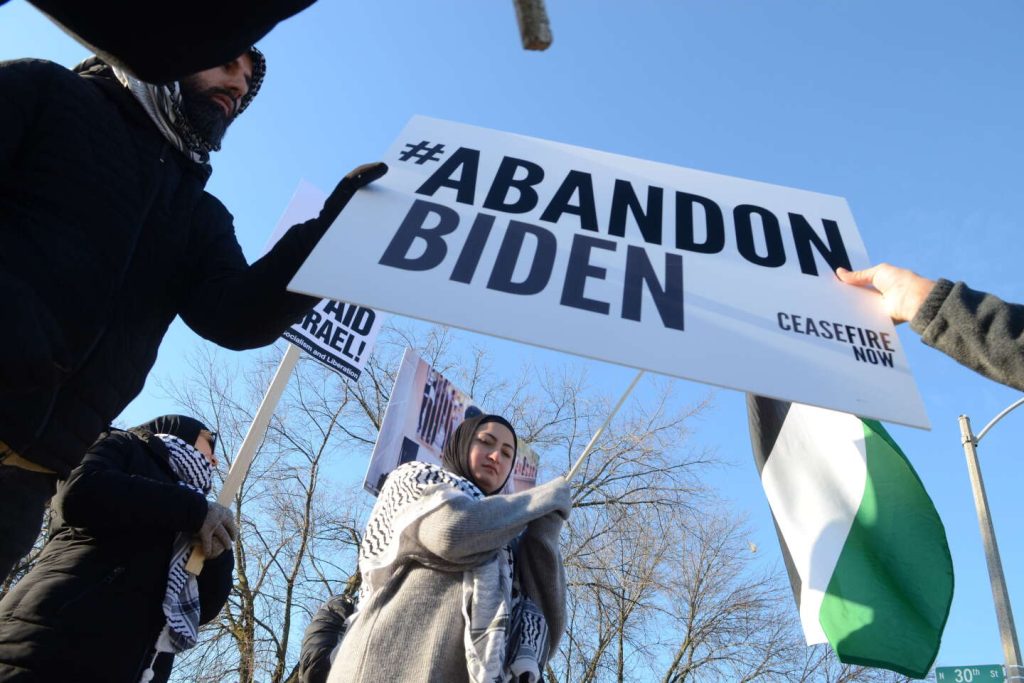In the recent Wisconsin primary elections, a significant wave of protest votes against President Biden emerged, reflecting growing dissatisfaction with his handling of the Israel-Hamas conflict. Tens of thousands of voters opted for “uninstructed” votes, surpassing expectations and raising questions about the depth of support for the current administration. This article delves into the significance of these protest votes, their implications for Biden’s presidency, and the broader political landscape in Wisconsin and beyond.
The Surge of Protest Votes: Wisconsin primary voters made their voices heard through “uninstructed” votes, a notable departure from traditional party loyalty. With 20,682 such votes cast, constituting a substantial margin, it becomes evident that discontentment with President Biden’s policies has resonated deeply within the electorate. This surge of protest votes highlights a growing sentiment of dissatisfaction and frustration, particularly concerning Biden’s approach to the Israel-Hamas conflict.
Roots of Discontent: The roots of discontent leading to the protest votes can be traced back to President Biden’s handling of the Israel-Hamas conflict. Amid escalating tensions and violence in the region, many voters in Wisconsin, and possibly beyond, felt disillusioned by Biden’s perceived lack of assertiveness in addressing the crisis. Critics argue that his administration’s response fell short of expectations, prompting a backlash from constituents who sought a more decisive stance.
Significance for Biden’s Presidency: The significance of these protest votes extends beyond the primary election. They serve as a wake-up call for the Biden administration, signaling a need for course correction and greater alignment with voter expectations. While Biden emerged victorious in all four states with presidential primaries, the sizable number of protest votes in Wisconsin underscores potential challenges ahead for his presidency. It highlights the importance of addressing concerns and recalibrating policies to maintain support within the party base.
Implications for the Democratic Party: The surge of protest votes in Wisconsin raises broader implications for the Democratic Party. It underscores internal divisions and discontent within the party ranks, with some voters expressing dissatisfaction with the current leadership. As Democrats gear up for the November elections, these protest votes serve as a reminder of the importance of addressing key issues and uniting the party behind a common agenda. Failure to do so could risk further erosion of support and jeopardize electoral prospects.
Assessing Biden’s Response: President Biden’s response to the protest votes will be closely scrutinized in the coming weeks and months. As he navigates the challenges of governing amidst internal dissent and external pressures, Biden must demonstrate agility and responsiveness to address voter concerns. His recent criticism of Israel’s government signals a potential shift in approach, but more concerted efforts may be needed to appease disgruntled constituents and rebuild trust within the party.
Political Landscape in Wisconsin: The protest votes in Wisconsin reflect broader trends within the state’s political landscape. As a key battleground state, Wisconsin’s electorate plays a pivotal role in shaping national politics. The surge of protest votes underscores the state’s status as a bellwether for broader sentiment across the country. Moving forward, political parties and candidates must pay close attention to Wisconsin’s shifting dynamics and adapt their strategies accordingly.
The wave of protest votes in the Wisconsin primary elections sends a clear message to President Biden and the Democratic Party. It highlights the need for introspection, course correction, and greater responsiveness to voter concerns. While Biden emerged victorious, the substantial number of protest votes underscores underlying fissures within the party and the electorate at large. As the political landscape continues to evolve, it remains imperative for leaders to heed the voices of dissent and work towards fostering unity and progress.
